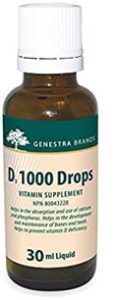Other than a pro-inflammatory diet, vitamin D insufficiency may also be a significant contributing factor to chronic LBP. The prevalence of vitamin D insufficiency / deficiency has been reported to be high in many countries such as Canada, particularly during the winter months. Studies have reported significant improvements in patients with chronic LBP following the repletion of inadequate vitamin D levels (<80 nmol/L) (Schwalfenberg 2009, Al Faraj 2003).
“Vitamin D deficiency is a major contributor to chronic low back pain in areas where vitamin D deficiency is endemic… Screening for vitamin D deficiency and treatment with supplements should be mandatory in this setting” – Al Faraj et al 2003)
In patients with chronic pain, 71% had vitamin D deficiency (25-OH D < 50 nmol/L) and another 21% had vitamin D insufficiency (25-OH D < 75 nmol/L) (von Känel 2014) meaning that 92% of patients with persistent pain may potentially benefit from supplementation.
There are currently no strict guidelines or placebo-controlled studies assessing vitamin D supplementation, but for those deficient, doses in range of 4000-5000IU of vitamin D3/day has been suggested.

“Vitamin D replacement treatment in patients with nonspecific chronic widespread musculoskeletal pain has provided improvements in musculoskeletal symptoms, level of depression and quality of life of patients.” – Yilmaz et al 2016
This meta-analysis (Yong 2017), concluded that “…vitamin D supplementation is able to decrease pain scores and improve pain despite no significant change in VAS after increasing serum vitamin D level.”

